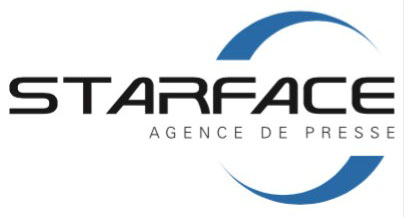Corentin Fohlen One of the new wave in www.lalettredelaphotographie.com
Last February, he came in second place for the World Press Spot News category. In November, 2010, he won the Calderon Prize at the Angers Scoop Festival, just after receiving the highly coveted Young Reporter Prize from the city of Perpignan during the Visa pour l’Image Festival.
On Friday, January 14, Lucas Dolega, a photographer for EPA, was hit by a tear grenade in Tunis. He would succomb to that injury on January 17. At his funeral, at the Père Lachaise cemetary in Paris, one hundred young photographers and journalists gathered. They had just returned from the jasmine revolution, and were preparing to depart for Cairo.
They are the new wave of French journalism. They are between 20 and 35 years old.. Their names are Arnaud Olivier, Rémi Ochlik, Pierre Terdjman, Olivier Laban-Mattei. Corentin Fohlen is one of them he is of the Lucas Dolega generation in the same way that 40 years ago there was the Gilles Caron generation.
Corentin Fohlen lives in a crowded little studio in Paris’ colorful 18th district. Not very tall, his eyes always in motion under his frizzy hair, he smiles when he sees an “oldie” as they say, in his home.
He is simple and amicable, like a cartoon character. Drawing is an old passion of his. He studied it at the Cartoon Mecca, Brussels. Photography came much later.
News Fever
I began with black and white photography in 2002. May as well be yesterday. He covered Brussels, looking for funny shots, humanistic photography. He cut classes in order to make his own prints. A little bit Tintin, very much Capa, and quickly, he settled in Paris where he was bitten by News Fever.
In Brussels, I never read the newspapers, I wasn’t interested in news. In Paris, to cover his rent, he worked at the Fnac, and took pictures of demonstrations during his breaks.
What I loved about these demonstrations was the feeling of being inside, in the heart of the action. After, I loved the mythical side of reporting : adventure, traveling, war…
If there was one photographer that might have influenced my work, it would be James Nachtwey. In photography, I want to be close to History, with a capital H !
He began covering demonstrations for « Wostok Press » (Paris) where he stayed for 18 months.
The agency was in the Director’s apartment. It was very “roots”. We ate together while we edited our stories. We were distributed by MaxPPP, which wasn’t commercially viable, giving up two agency fees.
Going to Gamma, and Abaca
Corentin Fohlen moved on to Gamma, now Eyedea Presse, where he worked briefly before realizing that the agency was on a downturn. He decided to work independently, and joind Fedephoto, an image bank for freelance photographers. He worked briefly with Abaca press in 2007 during the presidential elections, but was quick to return to his independent status.
Once we start, we can’t stop
In 2004, I left by bus to cover the orange revolution in the Ukraine. I got there late and had no publications. My first real story was the Congo, north Kiwu, n 2006. There too, I arrived late, or too early, when you are independent, it is hard to determine the good time to leave. For Tunisia, I was going to travel with Lucas and the others, but remained in Paris. I eventually did go to Tunisia, with Nathalie Donnadieu, to repatriate Lucas’ body.
After a long silence between us, he begins again, In August, 2008, I had planned to be “embedded” with the French army in Afghanistan. I got there right after the first scuttle, ten deaths, I sold well. Four pages in Paris Match, Le Monde, etc. I earned enough money to believe it was possible to continue covering conflicts despite the economic recession.
After covering the earthquake in Haiti in 2010 with my girlfriend Leila Minamo, journalist for Youpress, I learned that the best approach is send an email to the newsrooms to let them know when and where I would be going, and then I wait. Either they download my pictures from Fedephoto, or, if I am lucky, they commission work. That is how I covered the revolts in Bangkok, then Tunisia. For Libya, I spent three days there. I went to Ras Lanouf. Tensions were high, I watched the rebels recede before the intervention. I saw bullets hit the ground at my feet. It the first story that affected me so deeply. Then the Japanese catastrophe hit, and I returned home.
On March 26, 2011, he was awarded first prize by the contest jury for Le photographe de l’année de l’Agence pour la Promotion de la Photographie Professionnelle in the reportage category.
Michel Puech
Links
http://www.corentinfohlen.com
http://youpress.fr
Dernière révision le 4 janvier 2024 à 4:46 pm GMT+0100 par
- Pierre Christin
Le scénariste de BD fut aussi
directeur de l’école de journalisme de Bordeaux - 11 octobre 2024 - Ah l’œil …
Des « visions fantômes » de Charles Bonnet à l’IA - 4 octobre 2024 - Yan Morvan (1954 – 2024)
La mort d’un immense provocateur génial - 27 septembre 2024




